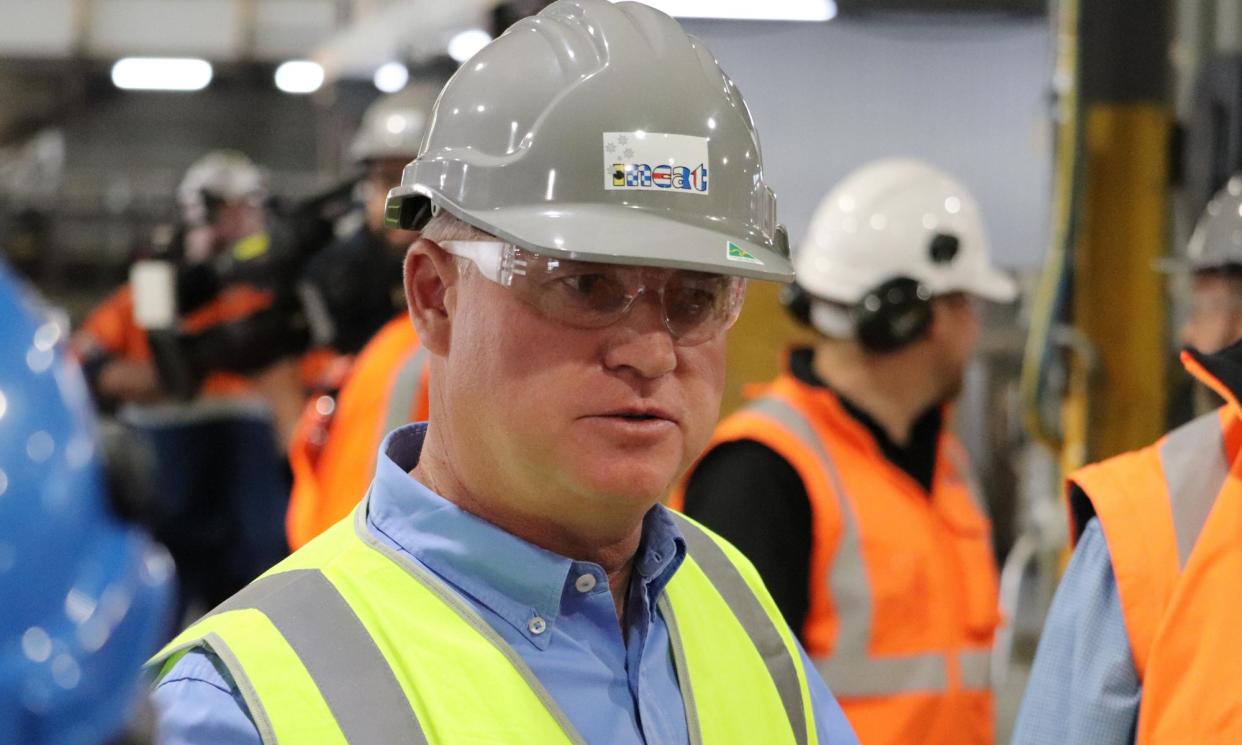Tasmanian premier Jeremy Rockliff pledges to open protected native forests to logging

The Tasmanian Liberal party has promised to open 40,000 hectares of protected native forests to logging if re-elected next month, prompting accusations it is playing politics with forestry workers’ jobs and planning to accelerate damage to the environment.
The premier, Jeremy Rockliff, said the Liberals would allow logging in 27 areas that had been protected since a 2012 “forest peace deal” struck by the timber industry, conservation groups and unions. The areas are in the state’s north-east and north-west.
Rockliff contrasted his plan with the bans on native forest logging introduced this year in Victoria and Western Australia after the industry became environmentally and economically unviable. He said Tasmania would boost supply of native forest sawlogs to local sawmillers by up to 10%.
The plan was criticised by political opponents, environmentalists and some industry representatives. A forestry lobby group said the plan was disappointing, nothing like what it had asked for and accused the government of using the industry as a “political football”.
The Liberals claimed power in 2014 promising to tear up the forests peace deal, which was struck in an effort to end the decades-long conflict known as the “Tasmanian forest wars”. The party designated 356,000 hectares of forests to be protected under the deal as a “wood bank” that could be accessed in future.
Those areas – branded as “future potential production forest” – have not been logged. Timber business leaders have repeatedly warned attempts to fell the trees could reignite widescale protests and market campaigns that would damage the industry.
In a statement on Thursday, Rockliff said the Liberal party’s intervention in 2014 had “rescued” the areas from being “permanently locked up”, and set them aside “for a rainy day”.
“That rainy day has now arrived,” Rockliff said. “The Liberals are the strongest supporters of Tasmania’s high-value native forestry industry.”
Interviewed on ABC radio, the state’s resources minister, Felix Ellis, said the government had been working with “a range of different people from the industry” in developing the policy, but repeatedly declined to name a Tasmanian sawmiller that backed its position and would take timber from the forest.
The Labor leader, Rebecca White, said that nobody in the industry had publicly backed the plan, suggesting it had been “cooked up overnight” and designed to reignite the forest wars. Labor said it would release a forestry policy “in the coming days”.
The Tasmanian Greens leader, Rosalie Woodruff, said the Liberal policy was appalling but not surprising, and that government-backed logging had pushed endangered species such as the swift parrot towards extinction.
She said the ALP must say whether it supported protecting high conservation-value native forests or the Liberals’ plan to have them logged. “There’s no avoiding this question for Labor,” she said.
John Tucker, a conservative independent MP who quit the Liberal party in the last term of parliament, said Rockliff’s plan would “not deliver one extra log to any mill in Tasmania” and would put native forestry jobs at risk by inviting a backlash. He said the announcement was “a cruel hoax designed to deceive voters”.
“It ignores the market power of major retailers, which was a crucial factor in the agreement reached in 2012,” he said.
The government policy follows projections suggesting a drop in available native forest timber for sawmills after 2027. Nearly 90% of the timber produced in Australia comes from plantations. Tucker said the hardwood timber industry had been trying to secure access to sawlogs from plantations, but the premier was not interested. “The industry is facing a very bleak future,” he said.
Related: Bureaucrats pushed for swift parrot recovery plan to be changed to play down logging threat
The Tasmanian Forest Products Association, a lobby group, said the plan was disappointing and accused the government of using the industry as a political football during an election campaign. Its chief executive, Nick Steel, said some of the area in question was not suitable for forestry, and called for “a full examination of the land” with input from forestry, Indigenous groups and environmental agencies.
Matthew Torenius, a spokesperson for the Tasmanian Sawmillers Association, said the organisation had reservations about the policy and hoped the Liberals would provide more information.
Bob Brown, the former Greens leader and longtime activist, who was recently arrested for trespass in a logging zone, said the policy “may see me, for one, spending time in jail for peacefully defending those forests and their wildlife”.
An EMRS poll of 1,000 Tasmanians released on Wednesday suggested the Liberals were most likely to be in a position to form a government after the 23 March election, but could struggle to win a majority of seats. The Liberals had 39% support, Labor 26%, independents 14%, the Greens 12% and the Jacqui Lambie Network 9%.
The lower house is expanding from 25 to 35 MPs, with seven to be elected in each of the state’s multi-member electorates.

 Yahoo News
Yahoo News 
